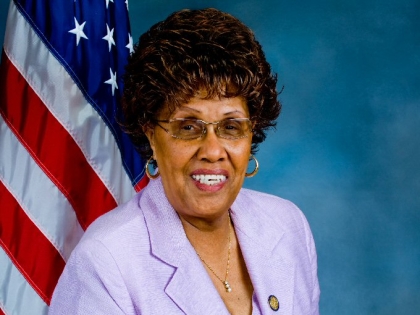
Borough's State Senators Tackle Subprime
Editorial feature in The Times Ledger
By Alex Christodoulides
Help came to some of those who needed it in southeast Queens Saturday as lenders, housing counselors, attorneys and borrowers converged at Campus Magnet High School in Springfield Gardens for a daylong event to address the subprime mortgage crisis.
Operation Protect Your Home was a joint effort between state Sens. Malcolm Smith (D-St. Albans), Shirley Huntley (D-Jamaica), George Onorato (D-Long Island City), John Sabini (D-Jackson Heights) and Toby Stavisky (D-Flushing) and a slew of co-sponsors including the state Banking Department, the city and state comptroller's offices, Gov. Eliot Spitzer, U.S. Sen. Charles Schumer (D-N.Y.), the New York City Council and the NAACP.
Event participants other than lending institutions set up tables along the ground floor hallway at Campus Magnet. Classrooms were dedicated to individual private meetings between borrowers and mortgage institutions, including Washington Mutual, Saxon, Litton, Chase, Wells Fargo and others.
A staffer in Smith's office said that when the doors opened for the event in the morning, there was already a line of people wanting to meet with Litton representatives to discuss their mortgages.
The borrowers who attended the event seemed calm, for the most part, though some had defaulted on their mortgages or were already in foreclosure and stood to lose their homes.
Figures published by the Furman Center for Real Estate and Urban Policy at New York University and compiled by the New York Times showed that foreclusures on two- to four-family houses had climbed again this quarter in Queens, most of all in Jamaica and the Rockaways, with southeastern Queens, Richmond Hill, Ozone Park and Howard Beach in the next deepest hot water.
Last week Spitzer and other mayors called on President George Bush to offer a comprehensive plan for homeowners in trouble, to deliver financial assistance to communities and borrowers, and collaborate with states to develop a solution to the crisis and a preventive strategy for the future.
One man who stopped by the state Banking Department table on his way out sounded upbeat as he told a volunteer that his house was in foreclosure now, but that he had spoken to his mortgage institution and gotten some advice that he planned to put into practice first thing Monday.
"Not everybody here is in foreclosure," said real estate attorney Andrew Jaloza, who has offices in Briarwood and Long Island.
He blamed the banks for being too willing to loan money to borrowers who may not have understood what they were getting into and said the best hope now is educating people who are mired in debt with tanking credit.
"We're trying to teach them to look forward into the future and make decisions more intelligently," Jaloza said.
The Banking Department volunteers said they were there to answer questions and accept forms if borrowers had complaints about their lenders. They said many of the borrowers, even those in foreclosure, had felt it was best to talk to their banks about their options.
Jaloza said foreclosure could create problems down the road for borrowers in trouble, much like declaring bankruptcy can in other circumstances.
"The fact they've lost their home, their credit is gone," he said. "Everything is credit-driven now, and they may have trouble getting apartments, trouble getting a loan."


